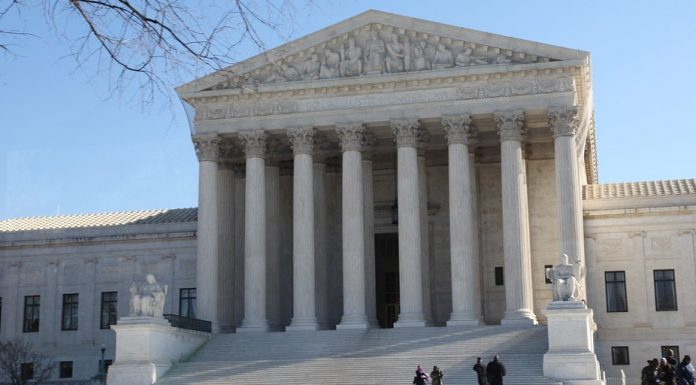(Associated Press) The Supreme Court on Wednesday put limits on when police officers pursuing a fleeing suspect can enter a home without a warrant.
The high court ruled that when officers are pursuing someone suspected of a misdemeanor, a less serious crime, they cannot always enter a home without a warrant if a suspect enters.
The court had previously said that police in “hot pursuit” of a suspect believed to have committed a more serious crime, a felony, can enter a home without a warrant.
The case the justices decided Wednesday is important both to law enforcement and to groups concerned about privacy.
“The flight of a suspected misdemeanant does not always justify a warrantless entry into a home. An officer must consider all the circumstances in a pursuit case to determine whether there is a law enforcement emergency. On many occasions, the officer will have good reason to enter — to prevent imminent harms of violence, destruction of evidence, or escape from the home. But when the officer has time to get a warrant, he must do so — even though the misdemeanant fled,” Justice Elena Kagan wrote for a majority of the court.
The case before the justices involved California resident Arthur Lange.
One evening in 2016, an officer saw Lange driving his station wagon in Sonoma County, playing music loudly and honking his horn several times. The officer believed those were noise violations punishable by small fines and followed Lange.
The officer later turned on his car’s lights to get Lange to stop. But Lange continued driving for about four seconds, turned into his driveway and entered his garage without stopping.
The officer got out of his car and, as Lange’s garage door was closing, stuck his foot under the door so it would re-open.
Lange was ultimately arrested after the officer smelled alcohol on his breath, and he was charged with driving under the influence as well as an excessive noise offense.
Lange argued that the officer’s entry into the garage without a warrant violated his Fourth Amendment right to be free of “unreasonable searches and seizures.”
The case is Lange v. California, 20-18.

